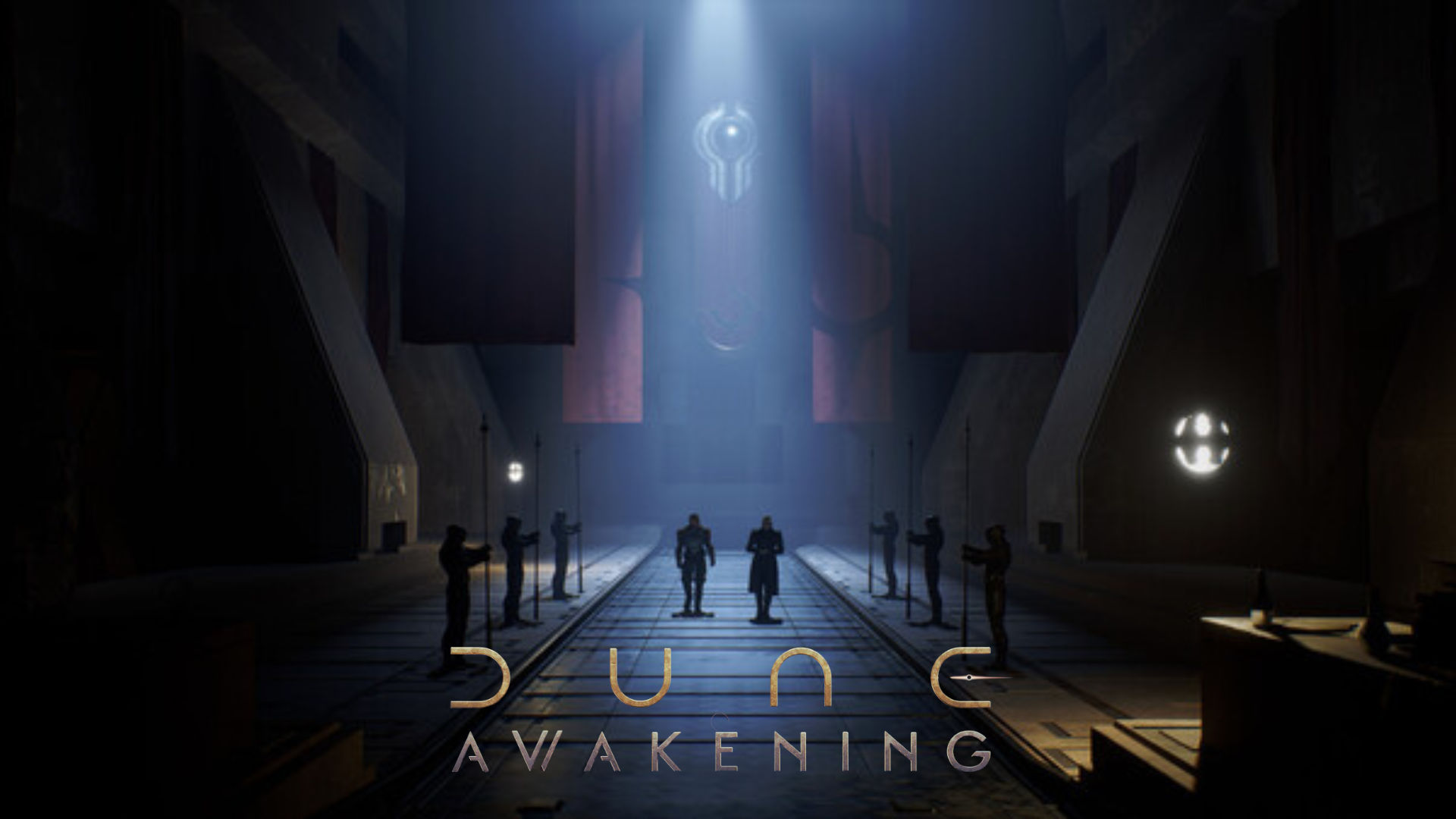
Dune: Awakening System Requirements
🎮 Introduction to Dune: Awakening
Dune: Awakening mixes the scale of MMOs with survival mechanics, outdoor adventure, and political intrigue—all in the world of Frank Herbert's famous sci-fi tale. It's a game that demands both smart thought and high-end speed from your machine.
🔥 Why Performance Matters
The open-world nature of Dune offers a vast, dynamic environment where thousands of players interact simultaneously across ever-changing terrain shaped by real-time physics and cutting-edge next-gen visuals. This level of immersion is breathtaking, but it also comes at a heavy cost—pushing your hardware to its absolute limits. Whether you're exploring the endless deserts, engaging in massive PvP battles, or trying to survive intense sandstorm events, any lag or frame drop can completely shatter the experience.
⚙️ Minimum System Requirements
- 🔹 CPU: Intel Core i5-8400 or Ryzen 3 3300X
- 🔹 GPU: GTX 1060 or RX 580 with 6GB VRAM
- 🔹 RAM: 8GB DDR4
- 🔹 Storage: 70 GB HDD/SSD
- 🔹 OS: Windows 10 64-bit
- 🔹 DirectX 12 Compatible
- 🔹 Internet: 10 Mbps broadband
Playability: Medium settings at 30–40 FPS on 1080p with reduced draw distance.
🖥️ Recommended System Requirements
- ⚡ CPU: Intel Core i7-9700K / Ryzen 5 5600X
- ⚡ GPU: RTX 3060 / RX 6700 XT
- ⚡ RAM: 16GB DDR4
- ⚡ Storage: 70 GB SSD
- ⚡ OS: Windows 10 64-bit
- ⚡ DirectX 12 Compatible
- ⚡ Internet: 10 Mbps broadband
Playability: High settings at 60 FPS on 1080p or medium settings at 1440p.
🌄 Ultra Settings & 4K Experience
- 🧠 CPU: Intel Core i9-12900K / Ryzen 9 7900X
- 🧠 GPU: RTX 4080 / RX 7900 XTX
- 🧠 RAM: 32 GB DDR5
- 🧠 Storage: NVMe SSD
Expect stunning real-time lighting, smooth animations, dynamic NPCs, and immersive particle effects—at 60+ FPS in 4K.
🧮 GPU Tier List for Dune: Awakening
- RTX 4080/4090 – Ultra 4K
- RTX 4070 Ti – Ultra 1440p
- RTX 3060 / RX 6700 XT – High 1080p
- GTX 1060 – Low-Medium 1080p
🧠 CPU Load and Bottleneck Prevention
The AI, physics, and player models in the game put a lot of stress on the CPU. It's best to get a multicore processor like the Ryzen 7 series or an i7s. To avoid problems, don't put low-end CPUs next to high-end GPUs.
💾 RAM, VRAM & Storage Analysis
8 GB RAM = survival; 16 GB = comfortable; 32 GB = elite multitasking. VRAM matters too—6GB minimum, 8GB+ recommended. And SSDs cut loading time by 60–80% vs HDDs.
🧊 HDD vs SSD Real-World Load Time
SSD boot = 8s, HDD boot = 27s. Map streaming, texture loading, and patch installations are all faster on SSDs. A Gen 4 NVMe drive ensures zero stutter in crowded environments.
🧰 Optimization Tips
- 🎯 Use GeForce Experience or Radeon Software for tuning
- 🎯 Lower shadows, motion blur, and foliage distance
- 🎯 Set priority to “High” in Task Manager
- 🎯 Update Windows and DirectX regularly
💻 Laptops & Steam Deck
Modern gaming laptops with RTX 3060 or higher can handle Dune at 60 FPS. Steam Deck will likely run at low-medium settings, 30 FPS. Use FSR for frame boost.
🌐 Network Requirements
Dune is always-online. Recommended minimum: 20 Mbps with ping under 50ms. Avoid WiFi when raiding—packet loss ruins fights.
🔧 Troubleshooting
- ❌ Stuttering? Disable V-Sync and cap FPS
- ❌ Crashing? Verify game files via Steam
- ❌ Overheating? Use a cooling pad or undervolt your GPU
🔮 Future-Proofing Tips
- ✅ Choose a GPU with 12GB+ VRAM
- ✅ 32GB RAM is becoming the new standard
- ✅ Modular PSU with 80+ Gold efficiency recommended
🏁 Conclusion
Dune: Awakening pushes boundaries—both in gameplay and performance. Whether you're a casual explorer or a hardcore PvP raider, having the right hardware can elevate your entire experience. Use this guide to build, upgrade, or optimize your setup so that you’re not just surviving on Arrakis—you’re dominating it.
❓ FAQs
-
Q: Can I play Dune: Awakening on integrated graphics?
No. The game requires a discrete GPU like GTX 1060 or better. -
Q: Will the game support cross-platform?
Unconfirmed, but likely for PC and console integration in future updates. -
Q: How much bandwidth does the game use?
Approximately 40–80 MB per hour during active multiplayer. -
Q: Does it support ultrawide monitors?
Yes, native ultrawide (21:9) support with custom HUD scaling.